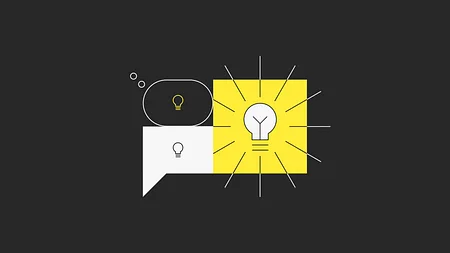Are challenger banks just better legacy banks?
This week I had the super-smart Mariano Belinky tell me that the current crop of challenger banks are really just ‘better mousetraps’.
The equally smart Chris Gledhill also stated that:
“One can’t help but notice that, for all the talk of disruptive new paradigm shifts in banking, the challengers look rather like the incumbents.
You still get a card (albeit more colourful!), an app (with sexy UI), a balance (more realtime), a statement (decorated with emojis), payments (with nicknames), overdrafts (contextual), loans (socially scored) etc. It’s not 21st century banking, it’s optimised 20th century banking!”
Chris' full article can be found on LinkedIn.
I disagree, but then I co-founded Monzo, and 11:FS, where I’m now helping various banks create and launch next generation propositions, so firstly I’m very biased, and secondly I know where truly digital banks are headed.
I don’t blame anyone for seeing emojis, a well designed interface, and a basic current account and saying that it’s all just cosmetic change. The problem is that without understanding the difference in mindset, technology, and roadmap from legacy banks, it’s easy to miss the point.
Digital banks aren’t obsessed with new technology
Your employer isn’t going to pay you in bitcoin, you can’t buy milk with QR codes, your friends and family have traditional bank accounts you need to interact with, and basically no-one cares about decentralised ledgers when they can’t pay the gas bill at the end of the quarter.
Equally, if a next-gen bank isn’t integrated into the current financial system, they’re irrelevant. So cards, transfers, balances, and payments are the basic components of even the most advanced challenger. Ditto for the Financial Services Compensation Scheme (FSCS) - are you going to trust your salary and savings to an organisation that could go bust tomorrow?\
I don’t blame anyone for seeing emojis, a well designed interface, and a basic current account and saying that it’s all just cosmetic change. The problem is that without understanding the difference in mindset, technology, and roadmap from legacy banks, it’s easy to miss the point.
Digital banks are obsessed with their customers
Hundreds of one-on-one customer interviews and quantitative research identifies real customer problems that intelligent digital services can solve. It’s not the window dressing of “customer centricity” that every bank talks about. It’s about delivering a service that brings real clarity, saves customers money, removes hassle, and integrates new providers and end-to-end journeys, all with transparency and openness.
Truly digital banks (as opposed to digitised banks) have only just appeared on the scene, and they have only just put the building blocks in place for the intelligent contextual services that we are only just beginning to see. There isn’t a traditional banking product platform at the heart of a digital bank. It’s a real time intelligent services hub.
So while they might look vaguely similar now, the differences run deep. As it’s a fundamental shift from products to services.
This may seem like a subtle difference, but it’s a fork in the road that in one direction leads to better commodity products, and in the other direction leads to a virtual private banker for the mass market.
While they might look vaguely similar now, the differences run deep...it’s a fundamental shift from products to services.
Is there a business model you ask?
The recent CMA report into UK current accounts showed that the average account earns a bank >£160 per customer, and even stripping out unethical unauthorised overdraft fees and excessive forex, that’s still a nice income - if you don’t have 40,000 staff, hundreds of branches and bloated legacy IT estates to support. Layer in marketplace platforms and services and you’re looking at an amazing sustainable service that provides real value and democratises fintech for everyone. The possibilities are substantial.
So, it’s easy to dismiss emojis and hot coral cards as nothing special, especially when banks aren’t used to seeing the launch and iterate approach that startups prefer. But don’t be fooled there is deeper change at work, and this is just the start.
11:FS is a new challenger consultancy created by some of the best people in the industry. Part agency, part strat house, part startup for hire. We know hard execution against strategic vision is the key. If you want to learn more about how you can deliver truly digital propositions, drop me a line at jason@11fs.com or find me on twitter @jasonbates.





